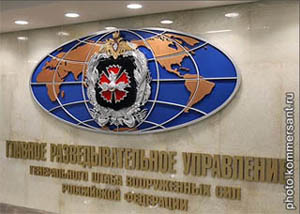Military-Diplomacy Academy or the Academy of the GRU Main Intelligence Directorate, or the GRU in Russian (for Glavnoye Razvedyvatelnoye Upravleniye) is the foreign military intelligence directorate of the Russian military. The chief of the GRU is subordinate only to the Chief of the General Staff and the Minister of Defense and has no direct connection to the political leadership of the country.
The GRU was created on October 21, 1918 by Leon Trotsky, who was then the civilian overseer of the Red Army[4]. It was originally known as the Registration Directorate (Registrupravlenie, or RU). Simon Aralov was its first head. The RU was given the task of handling all military intelligence, particularly the collection of intelligence of military or political significance from sources outside the Soviet Union.
The GRU gathers human intelligence through military attaches and foreign agents. It also maintains significant signals intelligence and reconnaissance through satellite imagery.
With the dissolution of the USSR, the GRU the GRU became for a time the principal intelligence body of the Main Command of the Commonwealth of Independent States Armed Forces. However after the creation of a Russian Ministry of Defense in April 1992 the GRU reverted to be Russia's military-intelligence arm.
In the 1990s, unlike the SVR, the GRU was involved in the conflicts in Chechnya. In 1996 Dzhokhar Dudaev, the separatist president of Chechnya was assassinated, when military intelligence successfully homed in on Dudaev’s cell phone signal and killed him with a missile. During the wars in Chechnya, GRU was also involved through the Russian special forces, Spetsnaz. Spetsnaz is subordinate to the military intelligence. In the yearly 2000s two Spetsnaz Special forces brigades, called East and West, were made up of loyal ethnic Chechens. The primary role of both brigades was the liquidation of suspected insurgents and their work was highly regarded by Moscow. In August 2004 Sergey Ivanov, Russian minister of defense, met with the Spetsnaz commanders to declare his support and supply them with more advanced weapons.
GRU has also been involved more recently with special operations abroad. On February 13, 2004, a white Toyota Land Cruiser carrying Zelimkhan Yandarbiyev, a Chechen warlord and vice president of the breakaway republic, and his 13-year-old son was blown up in the Qatari capital of Doha. No one took responsibility for the attack, but soon three Russian secret services' agents were arrested. Two of them were accused of killing, found guilty and then handed over to Russia. It was widely reported that both officers were agents of Russian military intelligence.
Agentura.Ru 2010


